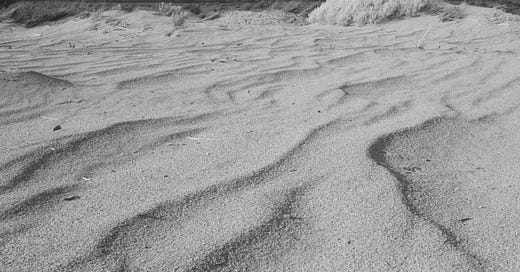I’m usually on the other side of the microphone, but last year I found myself being interviewed about a project of mine called Echo Location. When the article was published, I was somewhat embarrassed to see that the writer had referred to me as a “professional listener”. While it’s true to say that I have been a professional music journalist and editor for many years, there was something strange about seeing the word applied to listening.
Although I have listened to a lot of music in a professional capacity, my exposure to the world of sound - be it field recording, bioacoustics, sonic arts and so on - has been more recent. In that sense, I consider myself not so much a professional as an amateur enthusiast, still finding my way.
This newsletter is a continuation of that journey.
In a world where images rule supreme, speaking and writing about listening can often feel quite abstract. The hyper-academic field of sound studies and the scenes that surround field recording and experimental music don’t make this any more accessible. Noise pollution is rarely taken seriously in public discourse. Despite increased exposure, bioacoustic research often doesn’t resonate much beyond the papers in which it is published.
And yet, having spent the last few years immersed in some of these spaces, lurking behind the fog of data and discourse is a rich and vibrant world of work being pursued by a whole range of people listening to the relationships between nature, culture, politics and society. There are musicians working with bat echolocation calls or seismic data-sets. Sound artists capturing the fizzing sound of an algal bloom at the edges of the Arctic sea ice. Marine bioacousticians repopulating coral reefs with underwater sound systems. Authors writing books about foghorns. Far from feeling abstract, it all seems to teem with life.
Featuring interviews with sound artists, musicians, scientists and sonic practitioners, this newsletter hopes to bring some of that work under one roof. Skipping between disciplines, I hope it will create a space for dialogue with the people whose work is interested in listening differently.
Through sound it is possible to hear connections between people, place, industries and ecologies that might otherwise be hidden. Listening, it seems to me, has the potential to expose the political processes that underpin climate change and create new narratives of our relationship with the natural world. Through Sounds hopes to uncover some of those stories.





Respect Anton very engaging and resonates in so many spaces